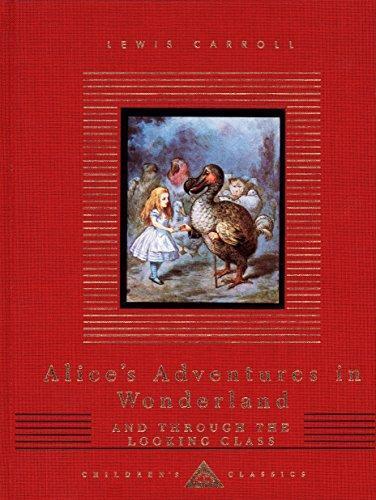English language
Alice's Adventures in Wonderland and Through the Looking Glass
Alice's Adventures in Wonderland (commonly Alice in Wonderland) is an 1865 English children's novel by Lewis Carroll (a pseudonym of Charles Lutwidge Dodgson). A young girl named Alice falls through a rabbit hole into a fantasy world of anthropomorphic creatures. It is seen as a prime example of the literary nonsense genre. Its play with logic gives the story lasting popularity with adults as well as children.One of the best-known works of Victorian English fiction, its narrative, structure, characters and imagery have had huge influence on popular culture and literature, especially in the fantasy genre. The book has never been out of print and has been translated into at least 97 languages. Its legacy covers adaptations for stage, screen, radio, art, ballet, theme parks, board games and video games. Carroll published a sequel in 1871 entitled Through the Looking-Glass and a shortened version for young children, The Nursery "Alice", in …
Alice's Adventures in Wonderland (commonly Alice in Wonderland) is an 1865 English children's novel by Lewis Carroll (a pseudonym of Charles Lutwidge Dodgson). A young girl named Alice falls through a rabbit hole into a fantasy world of anthropomorphic creatures. It is seen as a prime example of the literary nonsense genre. Its play with logic gives the story lasting popularity with adults as well as children.One of the best-known works of Victorian English fiction, its narrative, structure, characters and imagery have had huge influence on popular culture and literature, especially in the fantasy genre. The book has never been out of print and has been translated into at least 97 languages. Its legacy covers adaptations for stage, screen, radio, art, ballet, theme parks, board games and video games. Carroll published a sequel in 1871 entitled Through the Looking-Glass and a shortened version for young children, The Nursery "Alice", in 1890.
